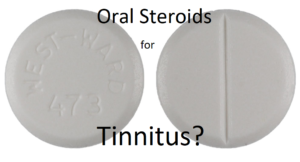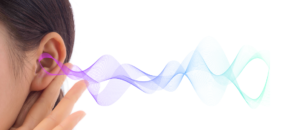If you did a search for Flonase and Tinnitus on the internet, you are in for a lot of confusion. The internet is almost divided when it comes to whether Flonase helps or makes Tinnitus worse. This post will attempt to help you clear up this confusion and decide whether you should take or avoid Flonase for your Tinnitus.
How does Flonase affect your ears?
To understand if Flonase can help or make your Tinnitus worse, you first need to understand how Flonase can affect your ears. Flonase is a prescription corticosteroid nasal spray. It’s prescribed for allergies. So, we’ve got to learn a bit about allergies work now.
What is Your Tinnitus Handicap Score?
Calculate your THI Score in about 2-3 Minutes
How allergies affect your ears?
When allergies like pollen or dust enter your sinus cavities, your body begins to fight it. It releases histamines and other allergy fighting chemicals. When histamine production is in overdrive, there’s mucus buildup in your sinus cavities. Sinus cavities are usually filled by air. With mucus in them, you feel stuffy and miserable.
What you must importantly know about your sinus cavities is that the back of your nose is connected to your ears., through a tube. This tube is called a Eustachian Tube. Close your mouth, pinch your nostrils and gently blow a bubble. You will instantly feel pressure build up in your ears. That’s pressure being sent from your sinus cavity to your ears, through the Eustachian tube.
How can Flonase help allergies that can then help your ears?
Now, when you have allergies, it’s not just your sinuses that are clogged. Your Eustachian tube is clogged as well. This means that fluid in the form of mucus can enter your ear fluid, from the sinus cavity. This can then cause your ears to malfunction. When your ears malfunction, your brain invents a Tinnitus sound. Why does it do that? Because it thinks your ears should be hearing something but aren’t. So, when trying to be helpful, it leaves you with an annoying ringing in your ears.
How Severe is Your Tinnitus?
Find out by using this THI (Tinnitus Handicap Inventory) Scoring Calculator
Now, when you use Flonase, it can clear up your sinus cavities. First, mucus production is stopped. Then, your sinuses have a chance to finally drain out all that snot. Your Eustachian tube dysfunction stops. Your ear fluids drain as well. When your ears begin to work normally, your brain can shut off the Tinnitus sound, because it has no reason to keep it on if your ears are working fine. If Flonase can give you Tinnitus relief, it will happen instantly, after the first application, and you will start seeing signs that Tinnitus is going away.
Why Does Flonase Help Tinnitus for some but make it worse for others?
When Flonase can Help with Tinnitus relief?
When you have Eustachian tube dysfunction caused by allergies
Like mentioned earlier, Flonase can relieve Eustachian tube dysfunction by stopping mucus production. If your Tinnitus is being caused by Eustachian tube dysfunction, you can try taking Flonase to see if it will help. When it can help, it should be able to do it anywhere from immediately to in a few days. If it doesn’t help in this time period, it is best you stop Flonase use after about a week of no improvement.
If Flonase makes your Tinnitus worse, you must STOP use immediately.
You can try Flonase for Tinnitus relief when your allergies.
- Make your ears feel full
- Leave you with muffled hearing
- Make you hear a pop or click in your ear
- Give you ear pain
How to use Flonase for Tinnitus relief?

Using the Flonase applicator vertically will only give you sinus relief. You might feel less clogged, but it won’t do much to clear up your eustachian tube. When you use the applicator horizontally, like shown on the right of the above picture, the spray can go into your Eustachian tube to then unclog it.
It might help to spray and gently close your nostrils and mouth to blow air. This will help the spray move along into the Eustachian tube. But you must blow GENTLY! The last thing you want to do is make your Eustachian Tube dysfunction worse by blowing too hard.
It also helps to stay upright for at least an hour to give Flonase the best chance to give you Tinnitus relief.
When Can Flonase make Your Tinnitus Worse?
When you have a Patulous Eustachian Tube
Your eustachian tube generally remains closed. But, when you have a patulous eustachian tube, it means that your eustachian tube opens up intermittently and more often than it should.
You might have a patulous eustachian tube if you experience some of the following symptoms, even when you don’t have allergies;
- A feeling that your ears are full or blocked
- When ear fullness subsides as you lie down
- You can hear your own voice at abnormal volumes (Autophony)
- Your breathing sounds amplified even when you are breathing normally
- You can feel your ear drums move when you breathe
- It feels like there’s a barrel over your head
It is not known why Flonase can make Tinnitus worse when you have a patulous Eustachian tube. But there’s strong and uniform anecdotal evidence that it does.
Is Flonase Safe to Take for Tinnitus Relief?
Above, you learned that Flonase should not be taken if you have a patulous Eustachian Tube. You must also immediately discontinue use if Flonase makes your Tinnitus worse. But otherwise, Flonase is generally safe to try for Tinnitus relief. Don’t expect miracles though.
But ensure that you follow the dosage recommendations provided by Flonase. Flonase is also a prescription spray. This means that you must use it after your doctor prescribes it for you. Self-prescribed use is not recommended.
Safe Flonase Dosage for Adults
First week = 2 sprays per nostril, per day
2nd week to up to 6 months = 1-2 sprays per nostril, per day
6 months + = Consult with a doctor
Pregnant and breastfeeding women should not use Flonase. Chronic use, i.e over 6 months is not recommended, unless Ok’d by a doctor. One must also take care not to exceed the recommended number of sprays in a day.
Safe Flonase Dosage for Children (4-11)
First week = 1 spray per nostril
Second week to 2 months (max recommended use) = 1 spray per nostril
Flonase in children should be stopped the moment symptoms have been relieved. Since it is a corticosteroid, it can interfere with a child’s growth rate. If possible, Flonase is best avoided in children.
Flonase Alternatives for Tinnitus Relief
Other brand nasal sprays
Afrin and Nasacort are popular alternatives to Flonase. They are also corticosteroid sprays meant to give you relief from sinus and eustachian tube congestion.
Steam inhalation
Steam inhalation is a brilliant way to relieve sinus and also eustachian tube congestion. It is 100% natural as well, unlike Flonase. Adding a few drops of eucalyptus or peppermint oil can greatly improve steam’s sinus draining efficiency. To be sure that your eustachian tubes are also steamed, slowly open and close your jaw as much as possible, a few times, while steaming.
Valsalva maneuver
The name might sound complicated, but the maneuver is not! To do this, simply close your mouth and pinch your nostrils. Then, gently blow air as if you are slowly filling up a balloon. You will instantly feel your Eustachian tube clearing up.
It is important to use gentle pressure. Your ears must feel the same kind of pressure you feel when you yawn. Anything more than that and you are overdoing it. You can do this maneuver up to 4 times in a day, preferably spread out through the entire day.
Like Flonase, there’s a debate about Benadryl and Tinnitus as well! We’ve tried to clear up that confusion too.


